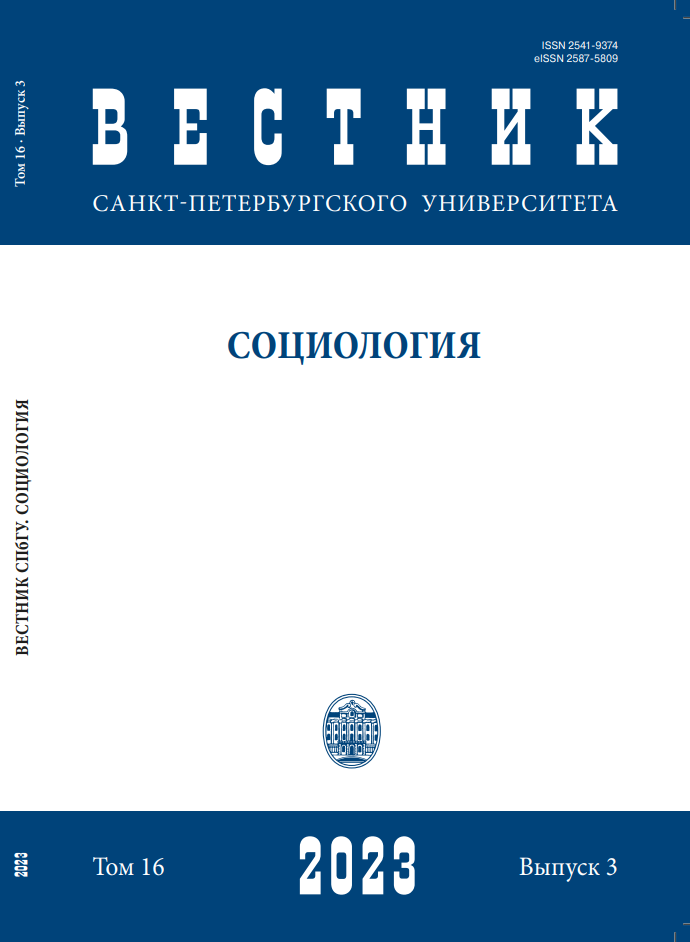Локальные акторы публичной сферы и их повестка в социальных медиа
DOI:
https://doi.org/10.21638/spbu12.2023.304Аннотация
Трансформация публичной сферы в результате влияния социальных медиа на публичную коммуникацию заставляет исследователей адаптировать существующие инструменты измерения общественного мнения и искать новые. Одним из таких инструментов является процедура создания выборки акторов, формирующих общественное мнение в социальных сетях. Эта процедура определяет не только методологическую составляющую исследования, но и отражает теоретический подход к измерению общественного мнения, который, в свою очередь, является следствием нашего взгляда на публичную сферу. В нашем исследовании мы предложили и протестировали свой вариант классификации акторов публичной сферы Санкт-Петербурга, используя данные из социальной сети «ВКонтакте». Благодаря широкой общей повестке, созданной эпидемией коронавируса, нам удалось проанализировать большое разнообразие акторов, формировавших общественное мнение горожан весной и летом 2020 г. Итоговая классификация содержит в себе онлайн-сообщества и персональные страницы общегородского и районного уровня, принадлежащие СМИ, государственным бюрократическим ведомствам, политикам и партиям, группам интересов, бизнес-организациям и предпринимателям. Помимо создания самой классификации, мы также описали основные элементы их повестки и составили рейтинг петербургских акторов, формирующих общественное мнение, по доле интереса со стороны пользователей «ВКонтакте». Полученное в результате анализа широкое разнообразие видов повесток: новости, отчеты, жалобы, пропаганда, агитация, реклама, развлечения — заставляет пересмотреть индикаторы отбора текстов из социальных медиа. Проведенное исследование расширило представление о том, какие публичные акторы участвуют в формировании общественного мнения в социальных медиа и какова их повестка.
Ключевые слова:
публичная сфера, социальные медиа, общественное мнение, публичные акторы, российская медиасреда
Скачивания
Библиографические ссылки
* Meta признана экстремистской организацией в Российской Федерации.
* Meta is recognized as an extremist organization in Russian Federation
Загрузки
Опубликован
Как цитировать
Выпуск
Раздел
Лицензия
Статьи журнала «Вестник Санкт-Петербургского университета. Социология» находятся в открытом доступе и распространяются в соответствии с условиями Лицензионного Договора с Санкт-Петербургским государственным университетом, который бесплатно предоставляет авторам неограниченное распространение и самостоятельное архивирование.




